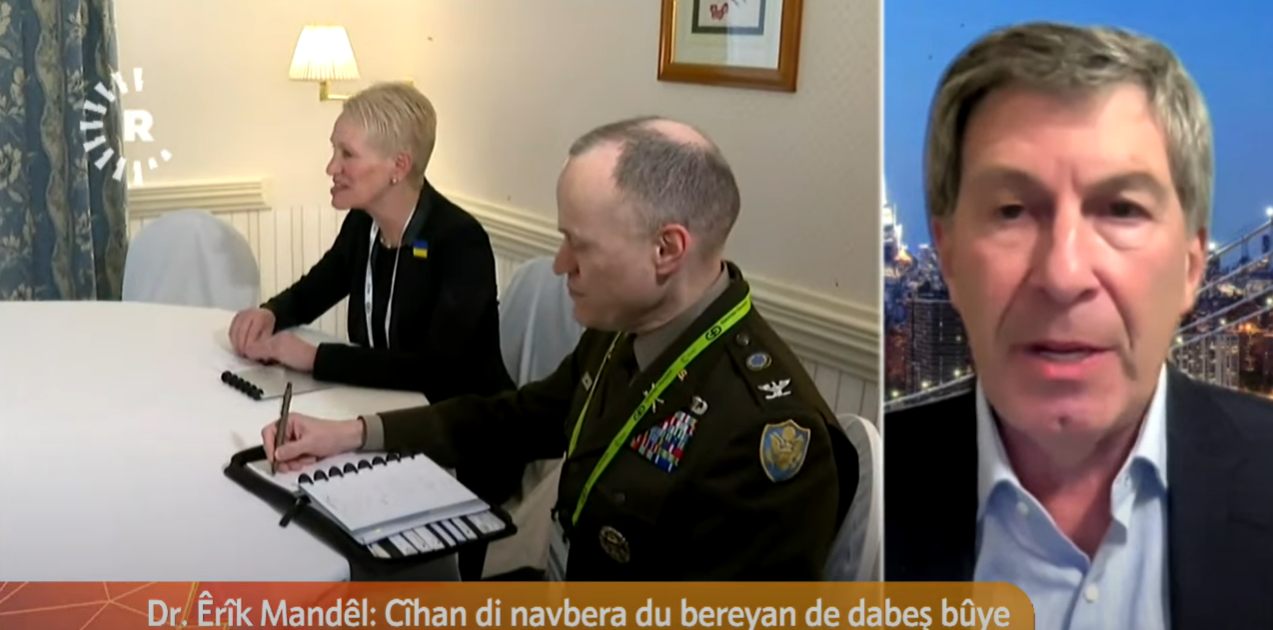From Dr. Mandel:
I was asked by Iraqi Kurdish TV (Rudaw) to speak about this weekend’s Munich Security Conference (MSC), the “Davos of Defense” and Security.
This was the first MSC since the Russian invasion of Ukraine and was significantly different than recent meetings in trying to project a unified front of liberal democracies supporting Ukraine against the authoritarian forces of Russia and China. Russia was disinvited from the conference because of its aggression.
America had a significant bipartisan presence, ranging from the Vice President to the Secretary of State to the majority and minority leaders of the Senate. Kamala Harris made headlines by accusing Russia of committing crimes against humanity. Senate Minority Leader Mitch McConnell said, “We are here to send a clear message…on a bipartisan basis, (we are) totally behind the effort of [sic] help Ukraine.”
The Iraqis wanted to know how the conference affected their Middle East interests and, in particular, why the Kurdistan Regional Government was not invited. I told my interviewers that this conference was almost entirely about Ukraine. The lack of attention to security and defense issues in the Middle East at the conference is an ominous harbinger for their interests.
Although Iran was not invited because of their brutal crackdown on protestors, they were also a secondary issue. That is a mistake, as they are one of the most destabilizing forces in the world. During the conference, it was reported that Iran was breaking UNSC Res. 2231 by talking with fifty nations to sell their precision-guided missiles and drones, much like they are doing with Russia.
When nuclear issues were discussed, Russia’s potential use of tactical nuclear weapons against Ukraine sucked all the air out of the room. Iran’s flouting of its atomic obligations was a second-tier issue. The announcement right after the conference that Iran reached 84% nuclear enrichment would not have made much difference to the western leaders. Iran has been defying the Nuclear Proliferation Treaty (NPT) and their other obligations for years, yet the Europeans have not considered reinstating sanctions on Iran.
During a discussion on risk reduction, the Europeans returned to their default positions, married to the legitimacy of the International Criminal Court (ICC) and UN as mechanisms to ensure accountability. The US and Israel are not members of the ICC because it endangers US and Israeli service members and is controlled by non-democratic members.
The confrontation between Secretary of State Blinken and the top Chinese diplomat Wang Yi over the balloon incident made headlines. But the much more significant danger is China becoming a major arms supplier to Russia and turning the Ukraine war into a long battle.
The Ukrainians need more weapons and fighter jets to change the war’s course. What is also required is placing and enforcing secondary sanctions on China and Iran for their support of Russia. That means when a non-sanctioned nation supports a sanctioned country, it will receive severe economic consequences.
Are President Biden and the Europeans up to the task? It is one thing to sanction Russia; it is quite another to make China and Iran pay the economical price.
2023 is truly the year of living dangerously.
Hopefully, our government will have the fortitude to overcome the shadow left by the failures in Iraq and Afghanistan to make intelligent decisions and realize the best way to decrease the chance for kinetic conflicts is to show strength and make your adversary believe you will use it.
